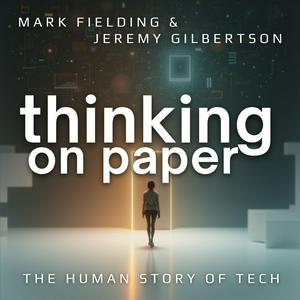Your kids are growing up in a world shaped as much by AI as by the internet. 25% of 8 year olds are already using generative AI in school. But what does that actually look like in the classroom? What are teachers and students using AI for? And where should parents, teachers, and policymakers focus their attention?In this episode, Mark and Jeremy dig into one of the largest studies to date on kids and AI: a two-part project from the Alan Turing Institute, informed by a national survey and an unusually in-depth workshop with 9 to 11-year-olds in the UK. The results pull back the curtain not just on how children are using ChatGPT and Snapchat’s AI, but also on how they feel about it: curious, creative, sometimes cautious, and surprisingly attuned to questions of bias and environmental impact.As parents themselves, Mark and Jeremy bring a personal lens to the conversation, asking: What does a healthy relationship with AI look like for children? Why do kids in private schools have so much more exposure to these tools? And how might new technology relieve—or deepen—existing inequalities in education?Watch On YouTube: https://www.youtube.com/watch?v=4ezwr9FvFGQ&t=1sHighlights include:- What kids are actually doing with generative AI. Why the gap between private and state school access is widening, and how family background shapes familiarity with AI.- The RITECH Framework: A breakdown of UNICEF’s eight-point model for responsible technology for children.For teachers: The tension between AI as a productivity booster and as a spark for cheating, and how adults can model critical thinking without banning tech outright.For policymakers: What child-centered AI and equitable access would actually require, plus the need for age-appropriate tools and real AI literacy—not just in tech hubs, but in every classroom.You’ll come away with a clear-eyed view: not dystopian panic, but a nuanced look at the real hopes, risks, and open-ended questions at the heart of AI in childhood. If you’re a parent, educator, technologist, or just someone wondering how a new wave of technology is changing the fabric of growing up, this episode is for you.If you find the discussion valuable, please like, subscribe, comment, and share. And let us know: what paper, idea, or debate do you want us to unpack next on Thinking On Paper?TIMESTAMPS(00:00) Disruptors And Curious Minds(02:40) The Alan Turing Research On The Impact Of AI On Children(03:49) The Most Popular AI Platform For Kids(04:41) How Are Kids Using AI?(04:55) Key Statistics From The Research On AI Use In School(05:33) The Divide: Private vs. Public School AI Usage(08:08) Are Kids Using AI To Cheat In School?(09:55) The RITECH Framework: Evaluating AI for Kids(11:18) Quotes From Kids On AI(16:13) Child Versions Of ChatGPT(18:12) Recommendations From The Alan Turing Institute--Other ways to connect with us:Listen to every podcastFollow us on InstagramFollow us on XFollow Mark on LinkedInFollow Jeremy on LinkedInRead our SubstackEmail:
[email protected]



